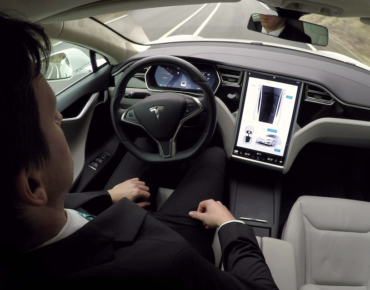Tesla Preps AI Chip for Autopilot

via Shutterstock
Auto maker Tesla looks to be disrupting the nascent AI market with the disclosure by company founder Elon Musk that the car maker is developing a new high-end AI chip that would replace GPUs provided by current Tesla supplier Nvidia.
Musk revealed last week that Tesla silicon engineers have been working on the AI chip for about three years. It would serve as the core processor for a neural network that handles algorithms associated with the electric vehicles’ autopilot.
“We've been like semi-stealth mode basically for the last two to three years on this, but I think it's probably time to let the cat out of the bag because the cat's going to come out of the bag anyway,” Musk disclosed during a conference call with financial analysts.
Musk touted the new AI chip as nothing less than “the world's most advanced computer designed specifically for autonomous operation.”
Tesla (NASDAQ: TSLA) said its ASIC would serve as an accelerator for the neural network being designed by its AI and computer vision teams. The Tesla autopilot currently uses an array of cameras to detect “lane drift” and other traffic conditions. The Nvidia GPU was used mostly for autopilot functions such as sensor processing.
Musk said the AI chip would be capable of handling up to 2,000 frames per second. That capability is said to be 10 times better than the current Nvidia GPU used with the Tesla system. Musk added that Tesla’s AI chip also would provide “full redundancy and fail-over.”
“Using a GPU, fundamentally it's an emulation mode, and then you also get choked on the bus,” the Tesla founder added. “So, the transfer between the GPU and the CPU ends up being one of the constraints of the system.”
Nvidia (NASDAQ: NVDA) declined to comment, but did point to a commentary by a market analyst who challenged Musk’s assertions. Patrick Moorhead, principal analyst with Moor Insights & Strategy, noted it is unclear which Nvidia platform Musk was referring to when claiming a 10-fold performance increase.
As for the assertion of a network bottleneck between GPU and CPU, Moorhead added that Nvidia is addressing the interconnect issue via its NVLink Fabric. “As Tesla didn’t release any detailed information, it’s hard to make a direct comparison,” Moorhead noted in a Forbes.com commentary. “Without those details, like Google's [Tensor processing unit], it appears Tesla designed its silicon without knowing what Nvidia was designing.”
Peter Bannon, Tesla’s director of silicon engineering, said his team surveyed “all of the solutions that were out there for running neural networks, including GPUs. We went and talked to other people like at Arm that were building embedded solutions for running neural networks. And pretty much everywhere we looked, if somebody had a hammer, whether it was a CPU or a GPU or whatever, they were adding something to accelerate neural networks.
“But nobody was doing a bottoms-up design from scratch, which is what we elected to do,” Bannon said.
The new AI chip is expected to be part of the next upgrade to Tesla’s autopilot. The electric car’s architecture allows Tesla to provide frequent software updates.
The disclosure of the AI chip illustrates Tesla’s aggressive push into automotive hardware as more chip developers focus on accelerators for AI-based applications. Observers also note that Tesla possesses a huge amount of vehicle data it can use to train new algorithms.
“I'm really excited about…building out this infrastructure for computer vision that underlies all the neural network training, trying to get those networks to work extremely well,” added Andraj Karpathy, Tesla’s director of AI development.










